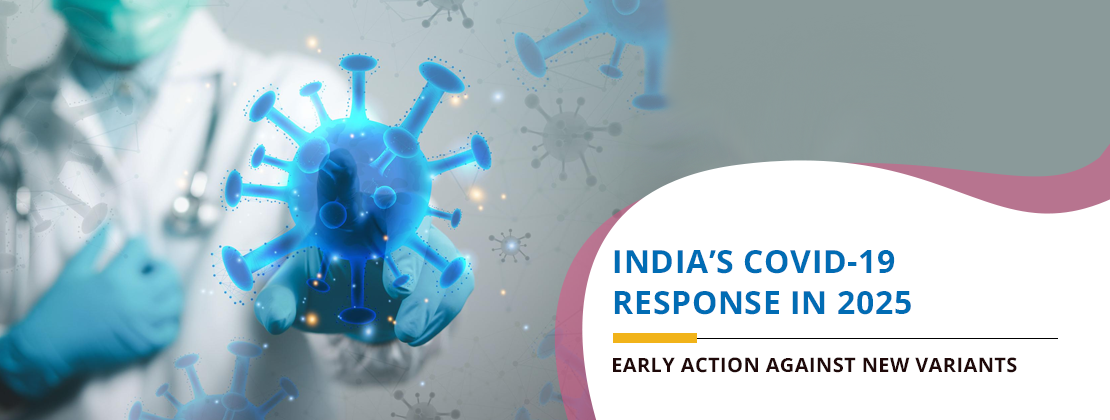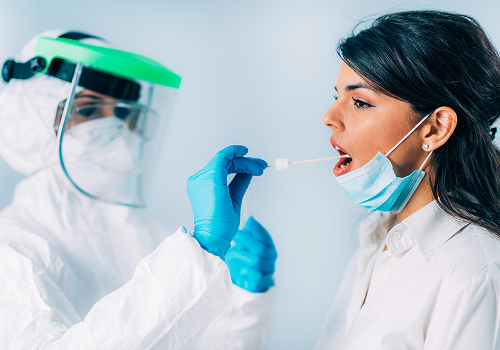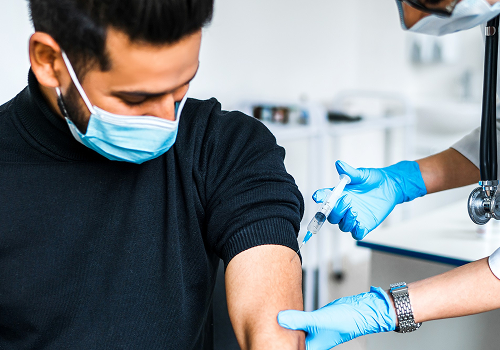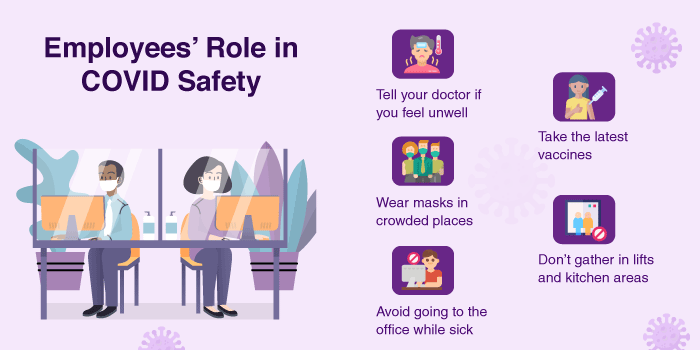
Home / Blog / India’s COVID-19 Response in 2025: Early Action Against New Variants
In 2020, COVID-19 interrupted the world for the first time, and nobody knew when it would end. In some parts of India, people are being careful again, just like five years ago, due to new variants—NB.1.8.1 and LF.7—emerging across multiple states.
The current situation has made people think again about their health, whether the vaccines work well enough, and what should be done to prevent the spread of diseases.
From understanding COVID symptoms in 2025, especially in India, to exploring the latest updates on COVID-19 prevention in 2025, both individuals and organisations are taking steps to raise awareness among the masses to improve their immune system against COVID.
In addition, collaboration with multispeciality hospitals in India is now an important plan for getting medical attention, taking care of patients’ health, and counselling.

Most individuals thought that COVID was a thing of the past. With declining case numbers in late 2023 and 2024, public sentiment shifted toward normalcy.
However, just like other viruses, coronaviruses mutate too, and very quickly. Some new worries emerged from the appearance of the NB.1.8.1 and LF.7 strains, which occurred at the start of the year 2025.
Key Symptoms of COVID in 2025
COVID symptoms in 2025 India are mostly similar to what was seen in the previous waves. However, this time, doctors in India have come across some interesting observations:
As per the Ministry of Health and Family Welfare, these symptoms are usually weaker but stay for a longer time as compared to the previous COVID infections.
Current Variant Spread in India
|
Variant |
Date Detected |
States Affected |
Risk Level |
|
NB.1.8.1 |
February 2025 |
Maharashtra, Delhi, Karnataka |
High |
|
LF.7 |
March 2025 |
Tamil Nadu, Gujarat, Punjab |
Moderate |
The Indian Council of Medical Research (ICMR) has categorised NB.1.8.1 as a “variant of concern” because it spreads 30% faster and is more resistant to previous immunity.

Everyone is asking if the vaccines will protect against the new variants after India vaccinated more than 1.7 billion people by 2023 in a highly successful global effort against COVID-19. But it is not enough to have received a vaccination once. The same way that the virus changes form, we will also need to change how we keep ourselves safe.
Are You Protected?
How to Boost Your Immune System Against COVID
Aside from vaccines, there are other ways through which you can naturally boost your immune system against COVID.
|
Natural Immunity Boosters |
Benefits |
|
Vitamin C (Amla, oranges) |
Enhances white blood cell activity |
|
Zinc-rich foods (pumpkin seeds, cashews) |
Reduces inflammation |
|
Turmeric with black pepper |
Natural antiviral |
|
Sleep (7–8 hrs/night) |
Supports immune regulation |
|
Yoga & deep breathing |
Reduces stress-induced immune suppression |
To safeguard your immune system from COVID-19 over time, ensure you keep healthy by eating right and exercising while also practising mindfulness.
There have been great changes in the way people work in the years following 2020. In the present day, most companies in India prioritise employee healthcare and utilise hybrid working systems. This has led to a reassessment of precautionary steps by firms in the wake of a fresh surge.
Corporate COVID-Readiness Checklist:
Companies in big cities such as Ahmedabad, Mumbai, Bengaluru, and Hyderabad are actively restarting health checks and campaigns.
Employees’ Role in COVID Safety:

India is home to the best multispeciality hospitals that have personalised health packages for companies. Corporate packages in these hospitals usually incorporate internal medicine, respiratory care, and psychiatry, as well as prophylactic diagnostics.
Benefits of Tying Up with a Super-Speciality Hospital in India:
This method assists companies in following the rules set by the government and also in making sure that employee satisfaction, lower absenteeism, and stronger long-term productivity are achieved.
COVID is not only a physical disease but also a mental one. Even after getting better, some people who were sick still experience worry, lack of sleep, and long-COVID brain fog.
Common Mental Health Concerns in 2025:
What Multispeciality Hospitals Offer:
Companies can include these services in their HR health policies or EAPs (Employee Assistance Programmes). Mental protection is as important as respiratory protection.
India’s response to COVID-19 in 2025 shows that it is better to act in advance than to wait and see what happens. We possess vaccines, medical facilities, and public education, although the virus mutates, requiring us to adapt as well.
No matter if you are a person trying to protect your family or a human resource manager overseeing a thousand workers, one thing is clear:
Although the pandemic appears changed presently, it is still ongoing. Stay awake, be ready, and above all things, stay fit.
The most recent kinds of COVID-19 that were found in India around the start of 2025 are NB.1.8.1 and LF.7. These ones spread quickly and may not be stopped by immunity that was acquired before; therefore, new booster injections are necessary.
Currently, there are no new vaccines against NB.1.8.1 and LF.7. Old vaccines, however, offer some degree of protection.
Variety monitoring, critical care, vaccination campaigns, and psycho-social counselling are among the important functions of hospitals. Various multi-speciality hospitals across India are offering comprehensive COVID care services.
Companies can take several measures to ensure employee health during this COVID wave, such as encouraging updated vaccinations, allowing flexible work models, partnering with super-speciality hospitals, and offering mental health and wellness programmes.